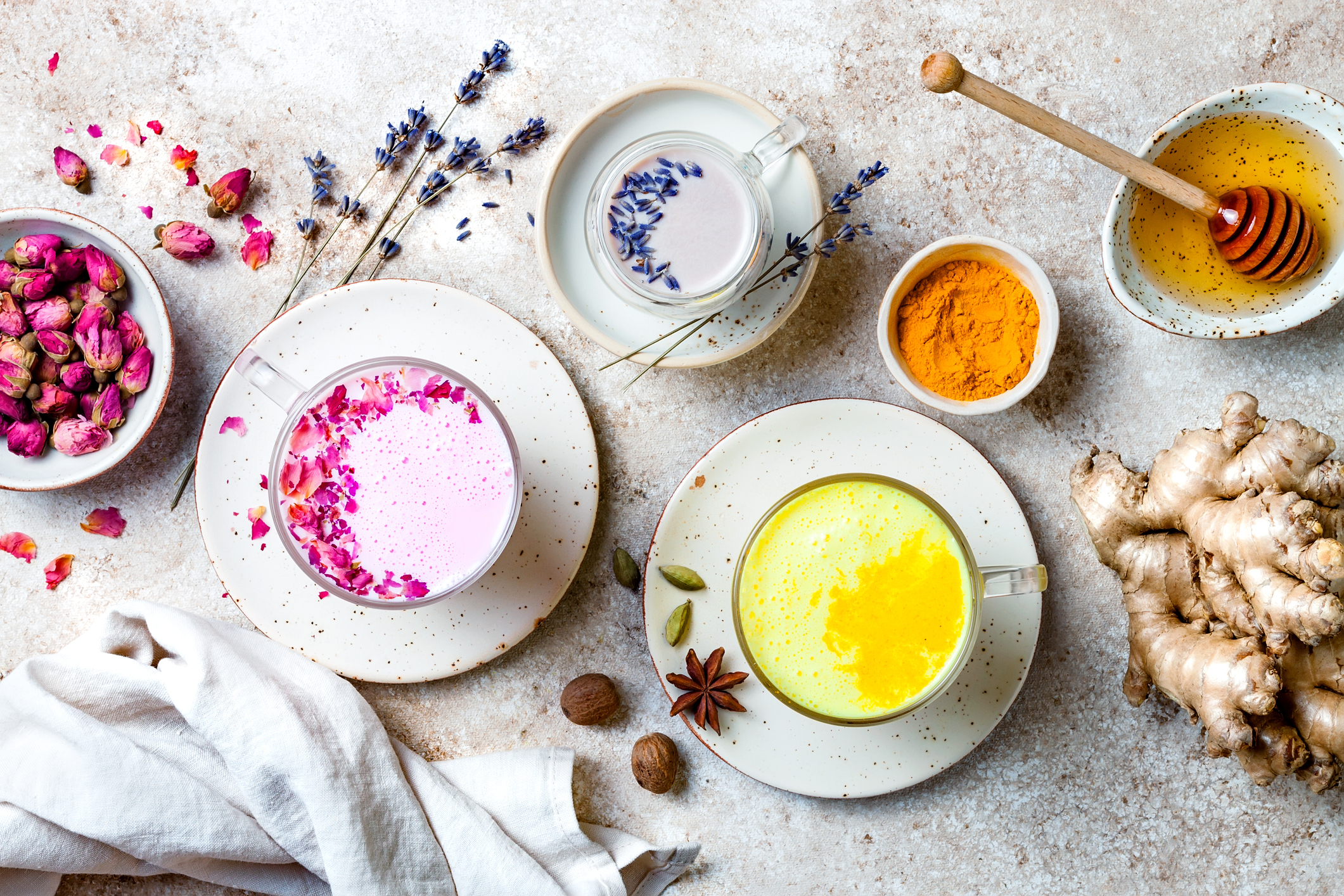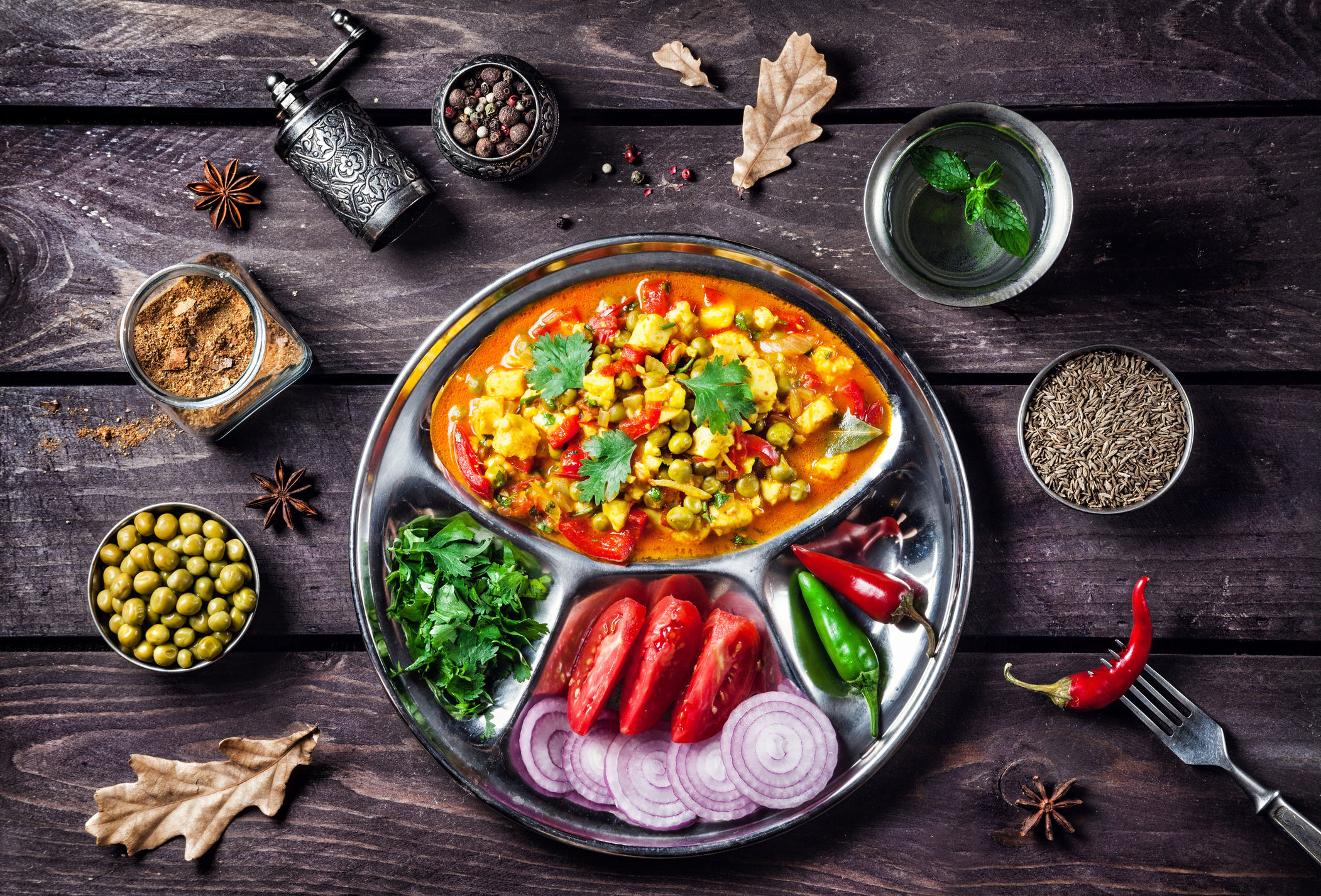We all have different traits, personalities, and health characteristics, so doesn’t it make sense for us to also have different nutritional needs? This is where the Aryuvedic diet comes into play. It’s a key part of the Aryuvedic lifestyle, which has been around for thousands of years.
The practice of Aryuveda originated in India, and it’s thought by some to be the oldest healing science. It’s centered around maintaining balance and harmony in the body. The main principle of the Aryuvedic diet is that you eat according to your individual dosha, or body type.
There are 3 doshas, vata, pitta, and kapha, which are derived from the five elements of earth, water, fire, air, and space. The diet also comes with a set of rules, or eating practices, that must be followed in order to truly reap all of the benefits of the lifestyle.
The 3 Aryuvedic Doshas
Aryuveda believes that the doshas are what maintain all of the systems in our body, both physical and psychological. Each dosha has specific qualities that exhibit in different ways. While some of us may lean towards one specific dosha, some people may be more of a combination, based on individual characteristics and lifestyle.
1. Vata
Composed of either earth or air, characteristics associated with vata include a thin frame, cold and dry skin, dry and frizzy hair, energetic, creative, restless, active, and dislikes routine. Vatas also have an irregular appetite and learn and forget quickly.
2. Pitta
Pittas are comprised of fire and water and are usually of medium build. They gain and lose weight easily. Qualities include having warm, oily skin, straight and fine hair, an intense appetite, being competitive and intense, and like planning and organizing. Pittas also aren’t fans of the heat and humidity of warm climates.
3. Kapha
Kaphas are composed of either earth or water. Characteristics of kapha include a broad and curvy frame, cool and fair skin, trouble losing weight, being calm, stubborn, grounded, stable, and enjoy having a routine. They learn slowly and dislike cooler temperatures.
How to Find Out Your Dosha
If you want the most accurate assessment of your dosha, you can always visit an Aryuvedic healer. Kripalu offers an online quiz you can take that will help you figure out what your dosha is. Chopra has a series of questions for determining your dosha as well.
How to Follow the Aryuvedic Diet
Each individual dosha has its own foods to eat and avoid to restore balance in the body.
Vatas should avoid cool, dry, rough foods in favor of warm and hydrating foods. Soups, stews, spices, and healthy fats like olive oil, avocadoes, and ghee all help balance out Vata. They need grounding, comforting foods.
Pittas have hot, sharp qualities, therefore, cool, refreshing foods will help them achieve balance. They should incorporate things like peppermint, green tea, cilantro, legumes, beans, cucumbers, and parsley. To restore balance, they should avoid spicy, hot foods.
Kaphas need foods that are light, warm, and dry and they should avoid heavy, starchy foods such as wheat, bread, and pasta. Light foods, mainly in the form of fresh, seasonal fruits and vegetables will help balance out the heaviness of this dosha.
Aryuvedic Eating Practices
The Aryuvedic diet also follows a set of eating practices, which need to be incorporated to help restore health, energy, and vitality to each of the 3 doshas.
Intake of 6 “rasas,” or tastes – Each meal should include the tastes of sweet, sour, salty, bitter, pungent, and astringent. This helps maintain balance because all 6 have different energetic effects on the body.
No snacking – In Aryuveda, the previous meal needs to be fully digested before the next is consumed, and snacking in between meals disrupts this process.
Make lunch your biggest meal – This is a tough one, since dinner is typically the biggest meal of the day for so many of us. In Aryuveda, the belief is that having a larger meal in the middle of the day will help keep your energy up, plus, your body will have more time to digest it.
Eat slowly and mindfully – Take your time and chew each bite fully. Savor your meal and eat until you are satisfied, not full. Also, eat sitting at the table, away from distractions, like the TV (or your phone)!
Eat fresh food – The practice believes that all food is made up of prana, or energy. Whole, fresh foods have the most prana since the least amount of time has gone by since they were picked from their source.
Ditch cold beverages – Icy and cold beverages disrupt the body’s inner fire, which interferes with digestion and also thoughts and emotions. Drink beverages warm, or at room temperature.
Stop eating 3 hours before bedtime – This allows the body to rejuvenate and restore while you’re asleep instead of working hard to digest your last meal.
Here at ITN, we believe that you’re fed by so much more than what’s on your plate. It’s what sets us apart, as the Transformational Nutrition Model is the only program that focuses on the 3 pillars of nutrition – Science, Psychology, and Spirituality.
The Aryuvedic diet is not a diet in the sense of being directly associated with the goal of weight loss. It’s a lifestyle shift that takes your whole self – the mind, body, and spirit – into consideration, with the intention of promoting overall healing and balance in the body. Isn’t that something we all would love to have?
Whether you try it to improve your own wellbeing or coach your clients on how to follow it, you’ll be inspiring and encouraging others to look at the whole picture when it comes to their nutrition and health.
Have you had any experience with the Aryuvedic diet? Let us know in the comments!


+ show Comments
- Hide Comments
Free Resources
Take A Look at the latest from ITN:
Courses
add a comment